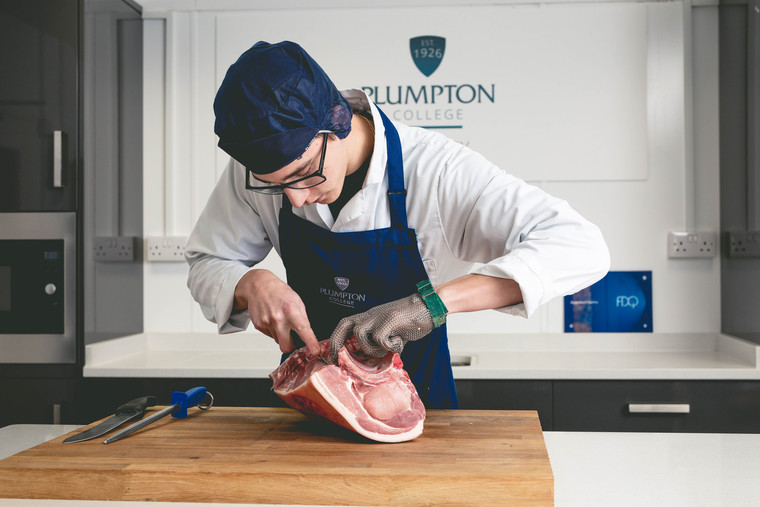After last month’s news that Brinsbury College in West Sussex had invested in a state-of-the-art milking parlour that has boosted average annual yields from 6,000 to close to 7,000 litres, South East Farmer can now reveal that Plumpton College has installed robotic milkers, sileage pushers and scrapers as part of a wider investment of around £2m.
The dairy spending, alongside investment in a new RSPCA-assured pig unit and a groundbreaking biosecurity centre, sets Plumpton apart as a model of best practice for agricultural training, according to College Principal Jeremy Kerswell.
“We have always focused on delivering a good quality student experience within our area of expertise, which is land-based qualifications, and on operating sustainably within a sound business model,” he commented. “I think this latest investment reflects our position as a top provider for agricultural students.”
Spending at both Brinsbury and Plumpton contrasts with changes at Hadlow College in Kent, which has recently auctioned off its dairy cattle and plans to move into beef, with students learning about dairying through a partnership arrangement with a nearby commercial enterprise.
At Plumpton, students will be able to get to grips with two high-tech Lely Astronauts, robot milking machines that are being integrated into the current cubicle housing system – but not at the expense of learning about traditional dairying.
“We are planning to split our dairy herd, which generally has 280 cows in milk at any one time, into two, so that students can learn about two different systems,” said Jeremy. The high yielding cows will go through the robots while the other half will be grass fed and milked conventionally.
“It means our students will learn about traditional dairying – including the 5am starts – but will also be able to study the newest technology and how to interpret the huge amount of data modern systems provide,” the principal added.
The pig unit, which will house 150 sows, also reflects the college’s broader approach to the industry and its commercial focus. The college’s new One Garden Brighton facility has a farm shop which sells meat reared on the farm and processed by the butchery training facility.
“Our aim is to highlight the opportunities throughout the industry, so we train butchers and food tech students as well as tomorrow’s herdspeople and dairy workers,” said Jeremy. “That way they can learn about the whole of the value chain, right through to selling the processed product in our own farm shop.” Having an outlet for the meat also removes the risk that would otherwise be incurred in expanding the piggery at such a difficult time for pig farmers.
“We also sell our own wine, beef and cheese under the Plumpton Estate brand,” said Jeremy, who said the college’s goal was to give students “as diverse and enriching an experience as possible”.
Plumpton is also investing in an industry standard biosecurity centre, which Jeremy said would be “more than just a place to change into your wellies”. He said no-one would be able to access the farm without being properly checked in and issued with clean equipment. “We want to model best practice,” he said.
The college, which is continuing to grow and now has 1,300 16 to 18 year olds plus 500 apprentices and other adult education students, also offers other land-based courses in subjects such as horticulture and equine subjects, attracting a total of more than 3,000 students from across the South East.




